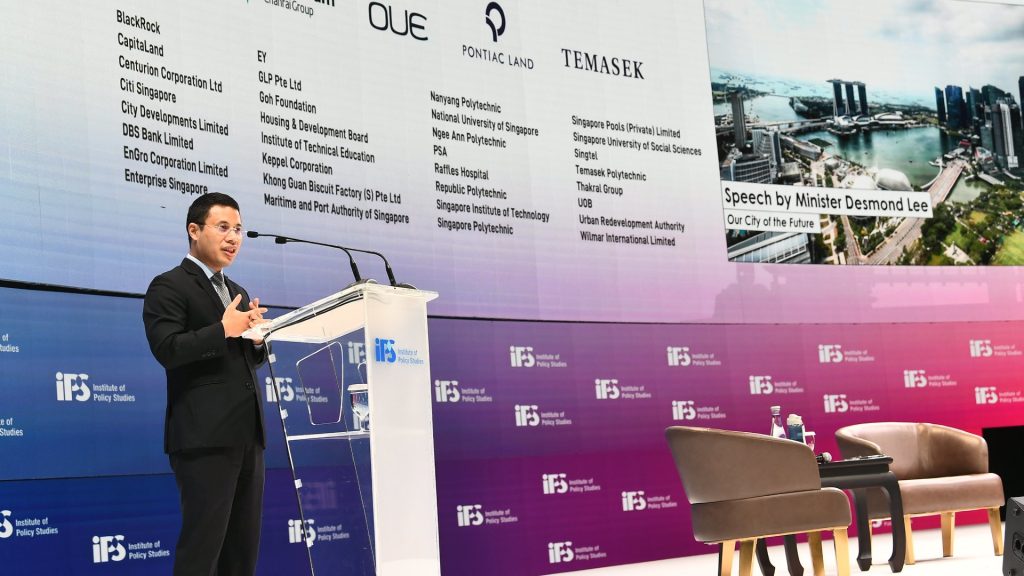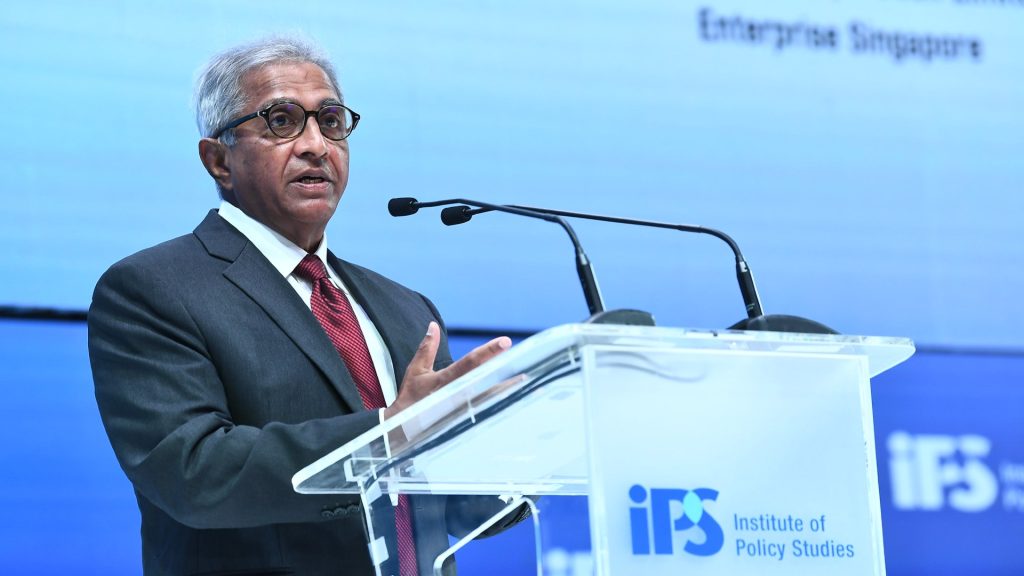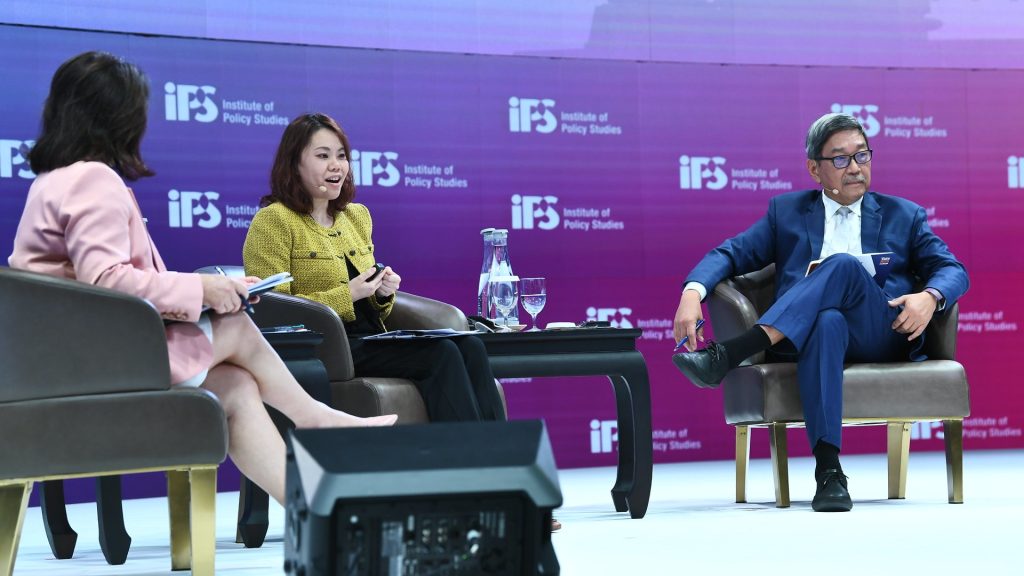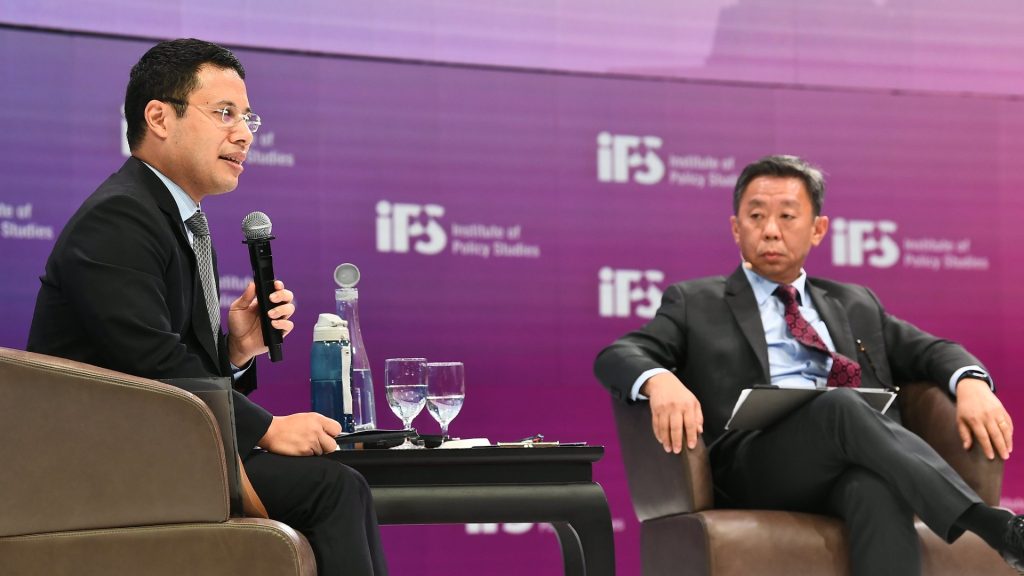Home and Hub: The Lion City Conundrum
February 3, 2022
IN BRIEF | 8 min read
- The four-day Institute of Policy Studies (IPS) conference explored Singapore’s status as a global city and offered speakers and attendees – both virtual and those at the Sands Expo and Convention Centre – plenty of food for thought.
- Speakers ranging from urban practitioners and academics to government officials, grappled with concepts of national identity and community building across a series of panel discussions and presentations.

Mala first found fame as a hotpot dish from Sichuan, China. Now, the spicy and numbing flavour is such a hot favourite among Singaporeans that it has not only reinvigorated foods from pizzas to potato chips, but also become an extension of the national identity.
The association between the gastronomic delight and national identity came up during a lively discussion at this year’s Singapore Perspectives conference, organised by the Institute of Policy Studies (IPS) at NUS.
In response to a question from participants on whether national identity is enforced in a top-down manner, Ms Cindy Khoo, Deputy Secretary, Strategy Group, Prime Minister’s Office (PMO), said it is very much a ground-up effort, that stems from the people who call Singapore home.
Deploying culinary culture as an example during the session “City: Who Belongs?”, she noted, “Our food has evolved with the influx of (mainland) Chinese, who brought their culture here. We have mala potato chips now and we love it. To a certain extent, there’s nothing wrong with the sense of (national) identity evolving as the complexion of a society changes.”
Culminating in its final session on 24 Jan, the four-day IPS conference explored Singapore’s status as a global city and offered speakers and attendees – both virtual and those at the Sands Expo and Convention Centre – plenty of food for thought. Speakers ranging from urban practitioners and academics to government officials, grappled with concepts of national identity and community building.
In his opening address, Mr Janadas Devan, IPS Director, touched on a conundrum, a common thread that would run through the three panel discussions during the day: How to manage the tension between Singapore’s open status as a welcoming global city while retaining its role as a homeland for its people.
Referencing Singapore’s vision to be a truly global city, as articulated by former Deputy Prime Minister S Rajaratnam as far back as half a century ago, Mr Devan set the stage for the discussions.
“Singapore – I think all of us would agree – cannot survive other than as a global city, open to global capital, innovation and talent,” he said. “But in the decades since independence, Singapore has also become less a place and more a home to Singaporeans.”

He added, “On the one hand, we have Singapore as homeland, the private, intimate space belonging to people like us… on the other hand, we also have the Singapore that is the global city.”
Shifting national identity
Singapore’s aspiration to be a global city has since been undergirded by a strengthening national identity, a set of shared values that, according to Ms Khoo of PMO, will continue to evolve.
In the absence of a storied historical legacy, Singapore’s national identity has to carry the country forward. “What will help us tide through storms has to be our national identity, our sense of togetherness, our shared values. That is the vessel that has to be solidified to weather the storms,” she shared.
Yet, this protean vessel will continue to transform dynamically as Singapore society evolves with new immigrants who bring with them new norms and cultures, including new food such as mala.
Ms Khoo’s fellow panellist, Associate Professor Ho Kong Chong, Head of Urban Studies at Yale-NUS College and Associate Professor of Sociology at the NUS Faculty of Arts and Social Sciences, agreed that it is the people, rather than the authorities, who shape the national identity.

“Participation is very important. It is not enough that you feel a common set of elements. To be Singaporeans and Singaporean citizens, there must be this attempt to try and contribute, initiate and participate,” he stressed.
Such actions, Prof Ho believes, are part of the process of contesting and negotiating the idea of what being Singaporean means, a concept which he thinks is fluid. “The idea of who is a Singaporean will continue to change,” he added.
This process, however, presents a dilemma in striking a balance between old norms of existing citizens and new practices brought in by immigrants, concluded moderator Dr Gillian Koh, IPS’ Deputy Director (Research) & Senior Research Fellow.
A better home for all
The conundrum was presented to Minister for National Development Mr Desmond Lee in the next session, a dialogue which wrapped up the conference.
Professor Tan Tai Yong, President and Professor of Humanities (History) at Yale-NUS College, summed up the quandary with his question: “As Singapore continues to position itself as a global city, it also has to consider building a city that is home. Do you see an inherent tension in this?”

While there was no easy answer, Mr Lee explained that all policies or actions are prompted by one goal – to develop a better home for the people.
“As a city-state, we have to be a home first. When you pursue economic growth through being a global city, you are really thinking about the people,” he said.
This is done to secure the resources to build a home, while ensuring that people feel at home – not just in a cerebral manner, but in their hearts as well.
“Everything we do – economic, defence, infrastructure – they all lead ultimately to home,” he added.
This story first appeared on NUSNews on 27 January 2022.

